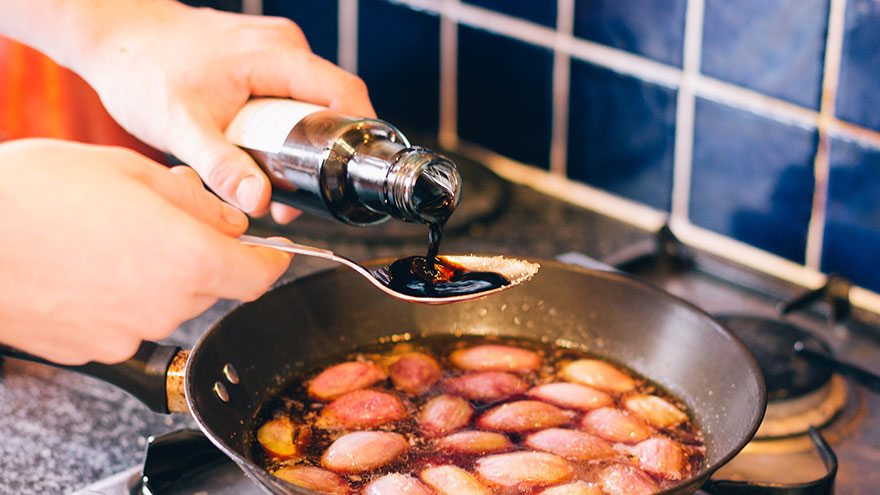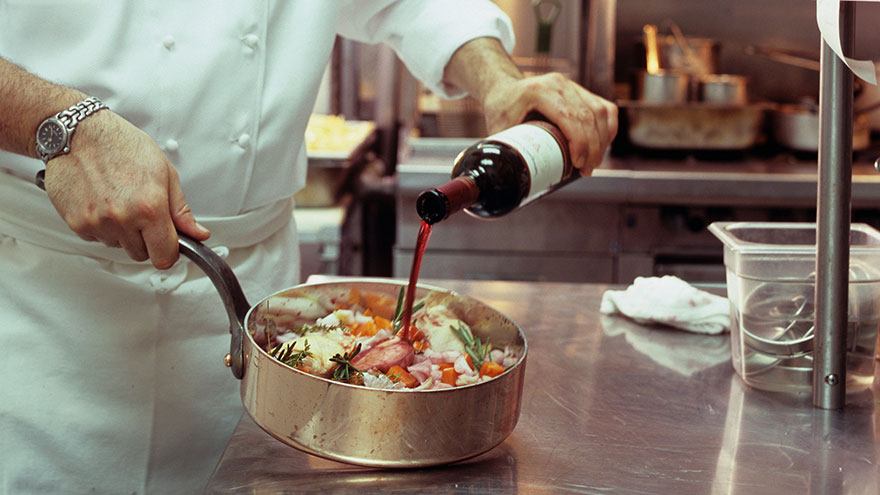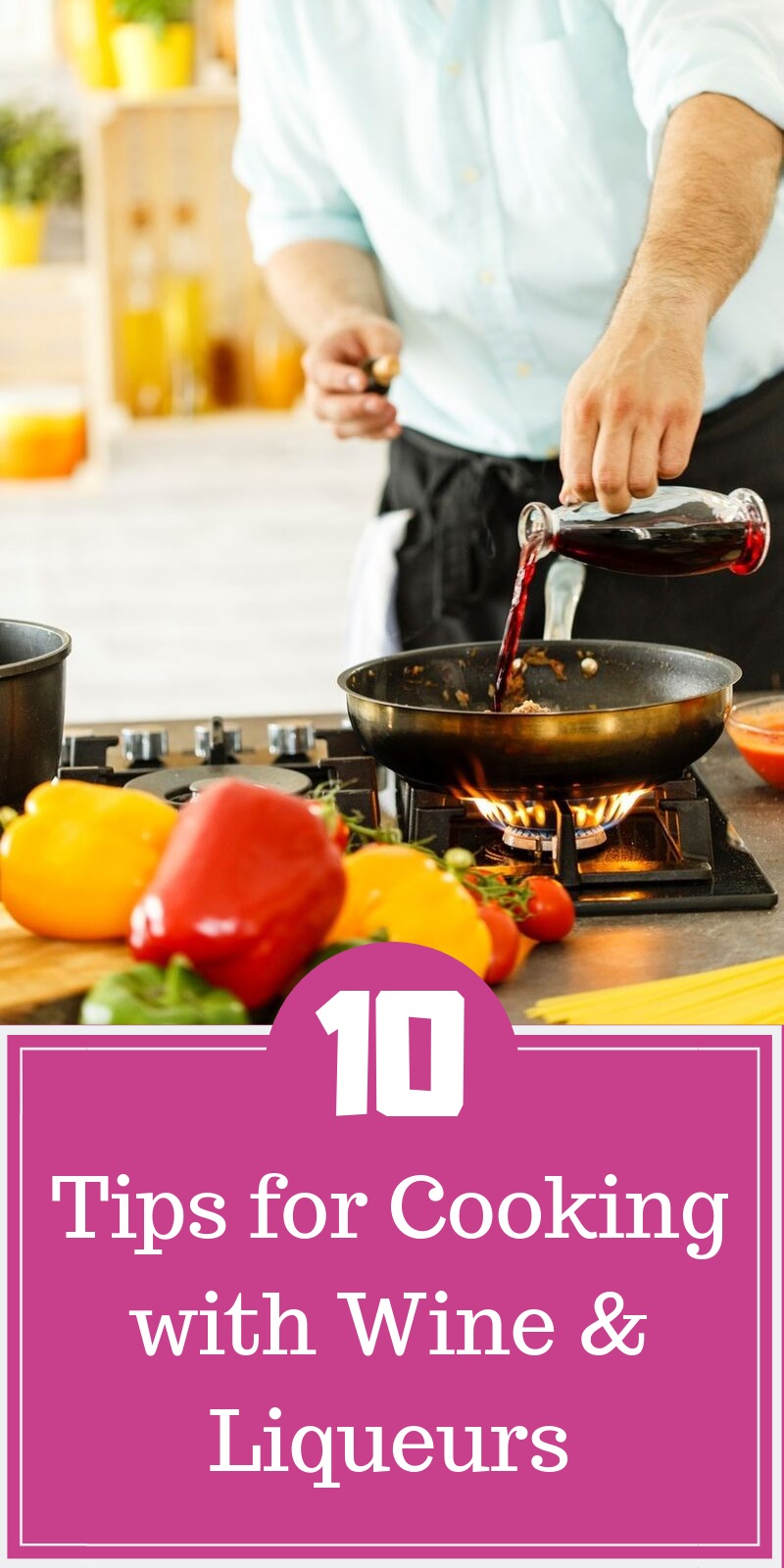Cooking with Wine and Liqueurs
Wine is an easy way to add flavor to your cooking recipes, but use it incorrectly, and you may end up with an inedible dish. The most important thing to remember when cooking with wine is that if you wouldn’t drink it, don’t cook with it.

All gourmet dishes begin with the quality ingredients, and that includes wine.
There are four main ways wine is used in cooking:
- For marinates, to tenderize and enhance the flavor of meat.
- As a deglaze. After cooking meat, scrape the bottom of the pan and add wine to the scrapings to make a sauce.
- As a sauce that’s reduced and cooked separately.
- In place (in part of in full) of stock.
- For poaching, in place of water.
Don’t be intimidated! Cooking with wine is not difficult, as long as you follow a few simple guidelines.
Cooking with Wine and Liqueurs

Here’s what you need to know about cooking with wine and liqueurs:
- When a recipe calls for white wine, you should generally choose something dry, not fruity or sour. Many experts recommend a quality American Sauvignon Blanc. If you’re unsure which white wine to buy, try a dry white vermouth instead.
- When red wine is called for, it should be full-bodied and young. Zinfandel is a good choice. For light dishes, consider Pinot Noir.
- Never use wine labeled “cooking wine.” It is of extremely poor quality and adds too much salt to the dish.
- When rum is called for, choose a dark Jamaican.
- When a recipe calls for Brandy, a good cognac is usually a great choice.
- As a rule of thumb, white wines are usually used for light-colored foods like fish and chicken. Red wines are usually paired with dark foods like beef and duck.
- Remember, most of the alcohol will cook out of the wine (the longer you cook it, the less alcohol there will be), so what’s left in your dish is the special flavor of the wine. Therefore, a fruity wine will help give a fruity flavor to your dish, for example, while a sweet wine adds sweetness.
- Never add wine at the last minute or it will overpower your food. A good rule to follow is to always allow the wine to reduce by half before serving.
- Consider replacing some of your recipe’s fat (oil, butter, etc.) with wine. For example, sauté the food in a small amount of oil, plus some wine.
- Never use aluminum or cast iron pots while cooking with wine.

Check out the video version of this article on YouTube

